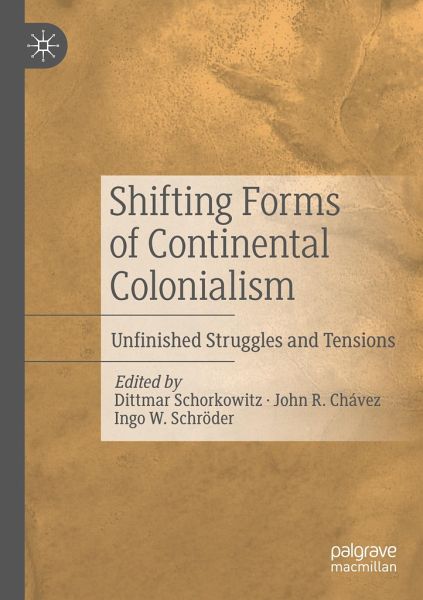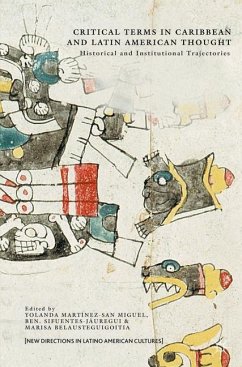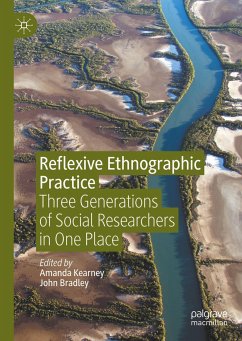
Shifting Forms of Continental Colonialism
Unfinished Struggles and Tensions
Herausgegeben: Schorkowitz, Dittmar; Chávez, John R.; Schröder, Ingo W.
Versandkostenfrei!
Versandfertig in 6-10 Tagen
65,99 €
inkl. MwSt.

PAYBACK Punkte
33 °P sammeln!
This book explores shifting forms of continental colonialism in Asia, Africa, Europe, and the Americas, from the early modern period to the present. It offers an interdisciplinary approach bringing together historians, anthropologists, and sociologists to contribute to a critical historical anthropology of colonialism. Though focused on the modern era, the volume illustrates that the colonial paradigm is a framework of theories and concepts that can be applied globally and deeply into the past. The chapters engage with a wide range of topics and disciplinary approaches from the theoretical to ...
This book explores shifting forms of continental colonialism in Asia, Africa, Europe, and the Americas, from the early modern period to the present. It offers an interdisciplinary approach bringing together historians, anthropologists, and sociologists to contribute to a critical historical anthropology of colonialism. Though focused on the modern era, the volume illustrates that the colonial paradigm is a framework of theories and concepts that can be applied globally and deeply into the past. The chapters engage with a wide range of topics and disciplinary approaches from the theoretical to the empirical, deepening our understanding of under-researched areas of colonial studies and providing a cutting edge contribution to the study of continental and internal colonialism for all those interested in the global impact of colonialism on continents.














